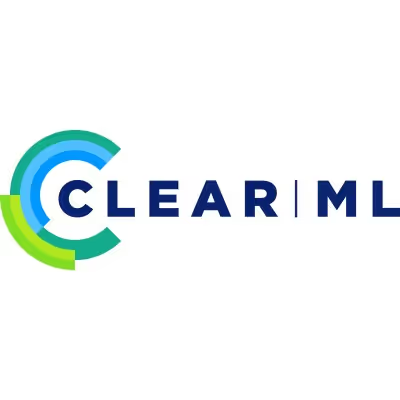
ClearML envisions a future where AI infrastructure is effortlessly accessible, reliable, and scalable for every organization, transforming AI from an experimental technology into a predictable and strategic business asset. Our platform empowers enterprises to fully leverage their AI investments by maximizing performance and streamlining the AI development lifecycle.
We are dedicated to advancing the management of AI and machine learning workflows through automation and optimization, ensuring seamless orchestration, data governance, and production readiness across diverse environments. ClearML pioneers the integration of comprehensive AI infrastructure tools designed to accelerate innovation and operational efficiency.
By democratizing AI infrastructure with an open-source foundation and enterprise-grade capabilities, ClearML aims to enable AI builders worldwide to build, deploy, and scale generative AI and machine learning models with unprecedented speed and confidence, driving meaningful impact across industries.
Our Review
We've been tracking ClearML for a while now, and honestly, it's one of those platforms that keeps surprising us with how much it tackles under one roof. What started as an open-source experiment tracking tool has evolved into a full-blown AI infrastructure powerhouse that's caught the attention of over 2,100 organizations—including some serious Fortune 500 players.
The Full-Stack Approach That Actually Works
Here's what impressed us most: ClearML doesn't just handle one piece of the AI puzzle. Their five-module setup covers everything from experiment tracking to model serving, and it actually feels cohesive rather than bolted together. We particularly like how their orchestration layer plays nice with existing infrastructure—whether you're running Kubernetes, bare metal, or that hybrid setup most enterprises are stuck with.
The fact that they support complex schedulers like Slurm and PBS tells us they're serious about enterprise compute environments. That's not something you see in every AI platform, and it shows they understand real-world infrastructure constraints.
Those Performance Claims Hit Different
ClearML throws around some bold numbers—200% GPU utilization improvements and 40% cost reductions. While we always take vendor claims with a grain of salt, the math makes sense when you consider how much compute typically sits idle in poorly orchestrated ML workflows. Better scheduling and resource management can genuinely unlock massive efficiency gains.
Their partnership with NVIDIA adds some credibility here too. When the GPU giant endorses your platform, you're probably doing something right on the infrastructure optimization front.
Open Source with Enterprise Muscles
We love that ClearML built this on Apache 2.0 licensing—it means you can actually kick the tires without vendor lock-in fears. But they've also figured out the business model puzzle with their tiered approach, offering everything from free community plans to enterprise-grade features.
This freemium strategy feels sustainable and honest. You get real value from the open-source version, but enterprises that need role-based access control, billing integration, and premium support have a clear upgrade path.
Who Should Care About This
ClearML makes the most sense for teams that are past the "running notebooks on laptops" phase but aren't ready to build their own MLOps infrastructure from scratch. If you're dealing with multiple data scientists, complex model pipelines, or serious compute requirements, this platform could save you months of engineering work.
We'd especially recommend it for organizations juggling both traditional ML and generative AI workloads. Their LLMOps capabilities seem well-thought-out, and that's becoming table stakes for any serious AI platform in 2024.
Feature
Experiment tracking and environment management
Orchestration and pipeline automation for ML/GenAI workflows
Data version control and dataset management
Scalable GPU-optimized model serving with monitoring
Rich reports and live dashboards
High-performance cluster orchestration (Slurm, PBS)
Role-based access control and billing support








